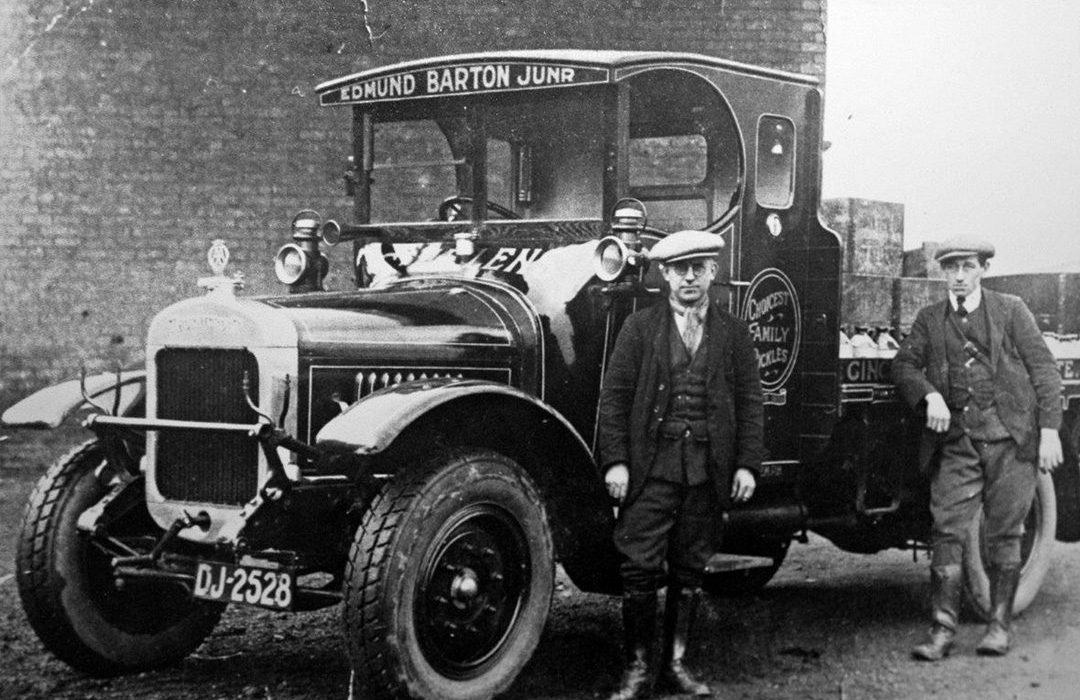Preserving our passion for over 120 years
For over a century, Bartons Pickles has been crafting handmade pickles, sauces and chutneys with the same dedication to quality, tradition and community that began in 1905. As a family-run business now in its fourth generation, we take pride in using time-honoured recipes and the finest ingredients to bring bold, authentic flavours to tables across the North West.
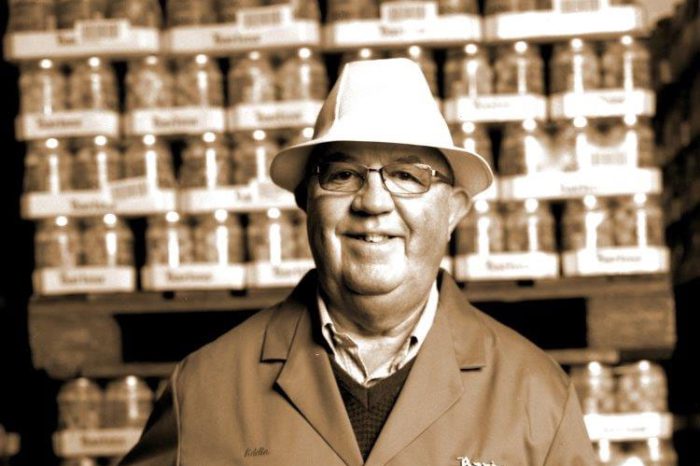
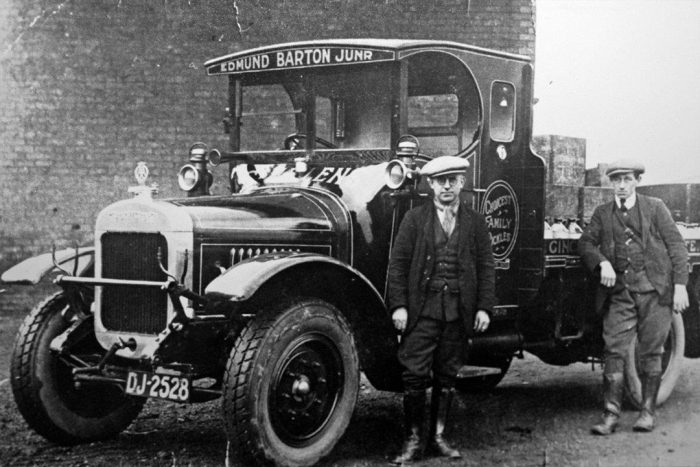
At the turn of the 20th century, as the Victorian era came to an end, my great grandparents – Edmund and Lydia Barton – started making pickles in their little cottage kitchen in Lascelles Street, Fingerpost, St. Helens.
Edmund Barton collected vegetables from local farms and markets including the Liverpool Fruit and Vegetable Market, then brought them home to St. Helens where the couple prepared them by hand – peeling, slicing, chopping and then simply preserving in spiced vinegar and sauce mixes to sell through the streets of St. Helens by hand cart. The pickle preserves were portioned and served from large stone bowls and jars, scooped out by the Gill (a cup measurement equalling around a quarter pint) directly into the customer’s own bowl. At this time, new and exciting exotic spices would have been coming through the great port of Liverpool, hence the availability of spices to the market merchants and traders of this period.
Edmund and Lydia experimented with some of their established pickling recipes through the addition of ground turmeric root from India and mustard flour from Canada; logging the different quantities and mixing methods used to create a fine range of Bartons best loved recipes.
Edmund volunteered for active service in the First World War from 1914–1918, travelling to far off Eastern countries and leaving Lydia to run the family business. It was at this time Lydia started delivering sacks of vegetables to local families, which were prepared within the home and collected the following day to be used for pickling – showing that mums working from home isn’t a new thing.
When Edmund returned from the war, the couple started to brew botanical drinks such as Dandelion and Burdock, Sarsaparilla, Curious Kola, Herb Beer, Ginger Beer and Traditional Lemon Soda. They now had a business covering both seasons, with cooling beverages in the summer and preserving vegetables through the winter months.
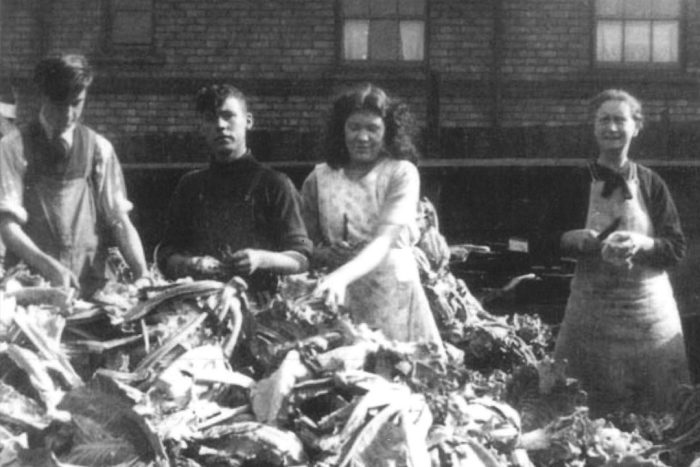
Doris Barton, second generation family pickler and daughter of Edmund and Lydia, was born at 60 Lascelles Street in 1908 and grew up peeling onions and floretting cauliflowers by hand from an early age. Doris met and married local lad Alfred Fairhurst in 1931, an apprentice painter and decorator from Parr Stocks Road, Fingerpost. They also lived on Lascelles Street with the family and to help pay his way, Alfred would help his father-in-law in the evenings with general maintenance jobs and preparations for the next day.
Alfred was an enterprising man and soon became full-time, developing the little premises by building storage areas and separate work rooms to house the ever expanding pickling and brewing activities. The more Alfred and Doris worked together, the more Edmund and Lydia began to take a back seat, and together Alfred and Doris built Bartons reputation for the best pickles in town within the community they lived and loved.
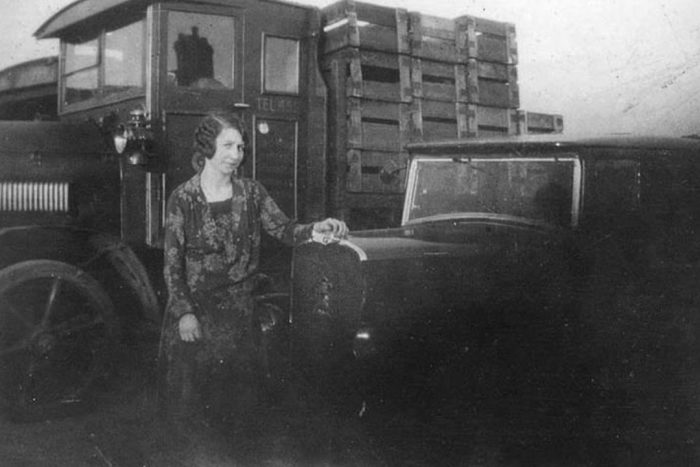
With the development and better accessibility of motorised vehicles, Alfred expanded the delivery the radius to reach other great Northern towns and cities. Independent grocers and butchers now received weekly pickle deliveries throughout the North West.
Edmund junior (Eddie Barton), third generation family pickler and son of Doris and Alfred, was born in this era and grew up helping his parents and older sister Doreene produce pickles, as well as going out on the door to door delivery rounds.
The botanical brewing also gradually transformed into soft drinks (pop) in glass bottles with the development of Lemonade, Cream Soda, Limeade, Shandy and Dandelion and Burdock. The ‘pop man’ delivered these door to door around St Helens, Liverpool, Warrington, Widnes, Wigan and Leigh.
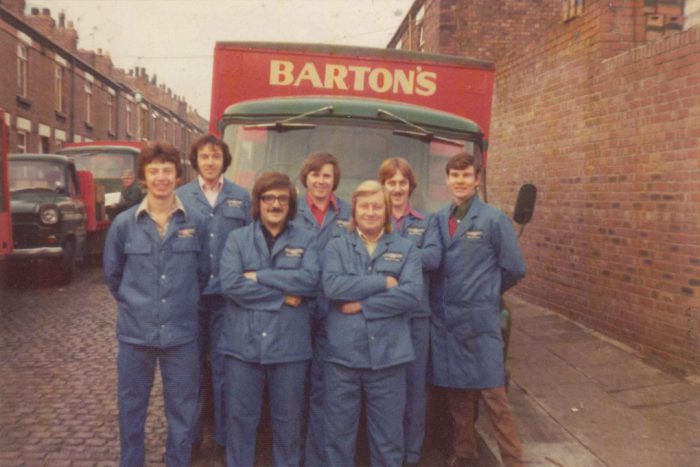
Sadly, Alfred died a young man and Edmund junior, third generation family pickler took the helm in 1964. The succeeding years saw pickle and pop production grow to supply hundreds of corner shops, grocers, chip shops butchers and homes.
The 60s and 70s were really the heyday of pop in returnable glass bottles, delivered directly to the door. The peeling of onions by hand was now done by a machine, whilst the hand-packing of vegetables into jars remained to maintain quality. Well into the 1970s, locals still came to the factory gate to buy their pickles directly from production – where warm piccalilli was poured from the pan directly into the customer’s own bowl or jug and covered with a muslin cloth or tea towel.
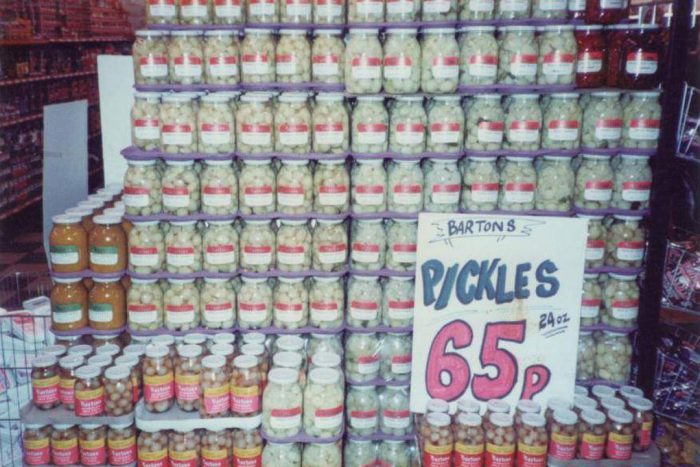
Pop sales started to decline with the advent of the plastic pop bottle and sugar free drinks. We continued to produce quality sodas in returnable glass bottles, but found it more and more difficult to compete with the supermarkets offering two litre bottles of pop for less than 10p.
However, pickle sales started to grow as customers continued to demand the quality, locally made condiments that they’d grown up with. During the late 70s and early 80s, some small individual grocers started to develop and became chains or joined buying groups. So, to reach our customers, we started to supply some local supermarket groups like Nevins, Lennons and the Co-operative. This started to change how the business performed, with less cash and more head office payments being made on account with cheques and bank transfers. At this time, computers were also starting to play a role in business accounting and we intrepidly invested in our first – a Kalamazoo accounts software package from Birmingham to include sales and purchases.
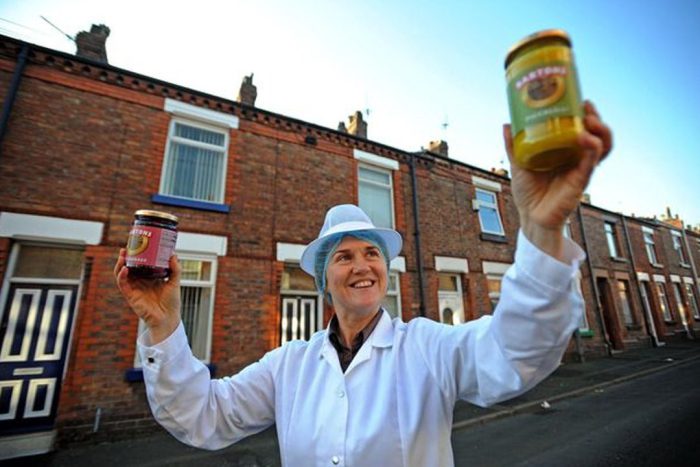
In the mid ’90s, Joanna Barton, fourth generation family pickler and daughter of Edmund junior, joined the family trade after university. It was important that Joanna learned the trade, so step-by-step Eddie taught Joanna the skills of making the perfect pickle – just like his Dad, Alfred, had done for him. It’s this skill and knowledge, together with a genuine passion for pickling that makes every jar of Bartons that little bit special. Today, Bartons Pickles is proud to supply multiple major supermarkets and smaller independent grocers around the North West, as well as selected outlets around the UK and abroad as far afield as Australia.
Bartons Pickles is now over 100 years old. We were honoured in our centenary celebrations on 24th November 2004 with a visit from HRH The Prince of Wales. Our heritage and local sourcing were much admired by Prince Charles during his visit to our little factory, where HRH observed our hand produced pickles being made and met lots of our local suppliers.


